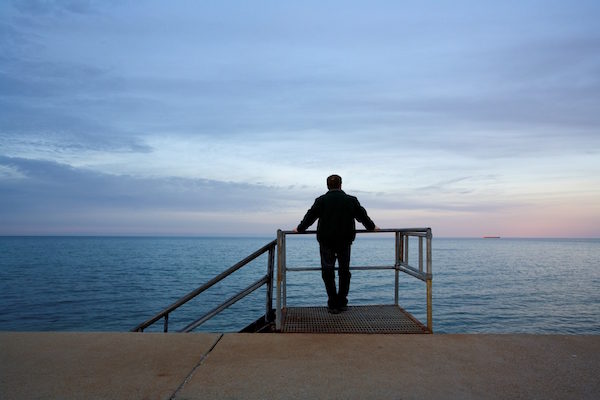I am forever in awe of the courage it takes to come in to therapy or counselling, of the sheer grit and determination of people who sit with a counsellor and ask for help to change their lives. But I’ll admit when a male client walks into my practice, I reach new levels of respect. That’s because for men, being strong and not admitting weaknesses is in many ways a cultural expectation of Australian males.

If you have seen Brene Brown’s TED talk on vulnerability or her follow up TED talk on shame, you may remember what she says about men:
“I did not interview men for the first four years of my study. It wasn’t until a man looked at me after a book signing, and said,
“I love what say about shame, I’m curious why you didn’t mention men?”
And I said, “I don’t study men.”
He said, “That’s convenient.”
And I said, “Why?”
And he said, “Because you say to reach out, tell our story, be vulnerable. But you see those books you just signed for my wife and my three daughters?”
I said, “Yeah.”
“They’d rather see me die on top of my white horse than watch me fall down. When we reach out and be vulnerable, we get the shit beat out of us. And don’t tell me it’s from the guys and the coaches and the dads. Because the women in my life are harder on me than anyone else.”
It’s an important point. It isn’t just the male macho culture of ‘suck it up Princess’ that causes problems. It is true that often women expect the men in our lives to be the strength we lean against; the solid, immovable trunk of our family tree, calm, strong and fearless in any storm.
When we see the men in our life start to struggle, we may not recognise what we’re looking at. We might think they’ve put weight on and need more sleep than usual, but might not associate that with depression. We might see them working late and worrying over small issues, and we may not register that as an early symptom of anxiety. Subsequently, men may feel isolated and lonely, which will affect their physical health even more. Men are far more likely to take themselves into the doctor for a general feeling of fatigue, than consider they need to see a counsellor.
As a result, of the approximately eight people who commit suicide every single day here in Australia, six of them will be men. Yes, you read that correctly.
It doesn’t help that men resist counselling. Despite research that shows men who are suffering and refuse to ask for help are likely to experience a decline in their interpersonal relationships, a higher rate of illness and subsequently earlier deaths, they still struggle to ask for help. So perhaps you can appreciate a little of why I sometimes wish I could stand up and applaud when I see a man courageous enough to walk into a counselling room. It’s hard enough for women – and generally we love to talk about our feelings, emotions and life events. Men, not so much. Silent and strong are bywords of masculinity. It can feel like transgressing some unspoken code to open up, and for some men it’s for the first time.
We now know – thanks to recent research published only this month by Katie Holloway and colleagues from the University of Portsmouth – is that men aren’t as interested in talking about problems as they are in fixing them. I’ve found this to be true in my own practice. In my experience men get a lot out of Solution-Focused work, in which we work through proven techniques to support creating effective changes in their day-to-day lives. Once engaged in therapy I find men are full-throttle forward, active in working for change, interested in results, and willing to ask the hard questions of themselves.
So how do you carefully and gently suggest that a man you know may benefit from therapy? Research shows that men are more likely to seek help for issues they perceive to be shared by other men. They are also less interested in the idea of counselling when they think all that’s going to happen is endless talking – either about the past or their feelings. Men want to know that they’re going to be presented with concrete and useful strategies and solutions.
Above all, if you are a man reading this, and you’re ‘falling off your shining white horse’, it will help to begin with understanding how normal this is. We place enormous societal expectations on men – expecting them to bear the primary financial responsibility of supporting families through the child-rearing years, have brilliant careers, earn plenty of money, be physically fit, competitive in a work environment – and yet somehow also expect them to be compassionate, helpful and understanding at home. And this isn’t even touching on additional complicating factors such as sexuality, relationship issues, grief, family dynamics and life changes. With this list of everyday stresses, it should come as no surprise that depression and anxiety can occur.
We need to normalise counselling as an everyday, simple and easy solution to life issues when they arise, and one of the ways we can do that is to offer counselling solutions in ways that support both men and women’s different therapeutic needs.




That was brilliant Victoria. Thank you
Well said, Victoria.
In some ways, I fell off my ‘shiny white horse’ a long while ago and I’m still sitting in the shit. In other ways, I am still grimly clinging to the saddle (and feel there are loads of people prodding me to fall off!) I agree that there are some ridiculous societal expectations on men (as there are on women as well). Luckily for me, I’ve never been shy about talking about my feelings (I’m not really a blokey bloke). I have been to numerous counsellors over the years, but a lot of the time it was just a bit of a talk-fest and I left feeling a little uplifted but didn’t really have any serious tools to improve my situation with. I think counselling men is a completely different ballgame to counselling women, and regardless of whether it’s a woman or a man doing the counselling (I often sought out women as I felt safer with them), I think it’s imperative that they have a good understanding of how men tick and the issues that relate specifically to men. I am very pleased to see you understand the issues. Great post.